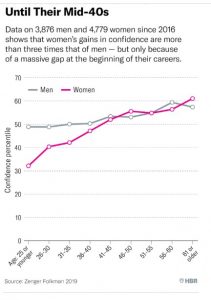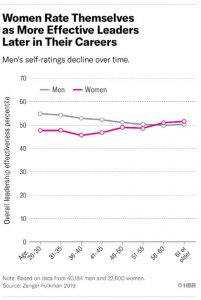The Courage and Confidence To Speak Up

The Debating and Public Speaking co-curricular activity is thriving at St Catherine’s this year, with many girls enjoying the team collaboration and collective thinking that occurs in preparation for debates and the more individualised research work in readiness for public speaking competitions. Year 9 student, Madeline Powell, achieved third place overall for her 2019 Debating achievements and, on 18 October, Madeline will be acknowledged with a medal at the 2019 Swannie Awards Ceremony. Presented to the top three speakers with the highest average score in each grade across all 20 regions in Victoria, the Swannie Awards are certainly a significant achievement for Madeline and worthy of our applause.

Year 9 student, Madeline Powell (fourth from the left), will be recognised for her Debating achievements at the 2019 Swannie Awards.
Decades of academic research have proven that the benefits that accrue as a result of engaging in debate are numerous. Debate provides experiences that are conducive to cognitive development and presentation skills. In addition, debaters acquire unique educational benefits as they learn and polish skills far beyond what can be learned in any other setting. At the very least, debate helps students to recognise the power of deploying rational, reasoned arguments and compelling evidence in action. It enables them to elucidate their standpoint through utilising rhetorical eloquence. It instils in debaters a great sense of poise and confidence. It teaches them the skills of researching, organising and presenting information in a compelling fashion.

Academic research has proven that the benefits that accrue as a result of engaging in debate are numerous.
Madeline also captivated the audience on Monday at our Senior School Assembly with her impressive delivery of her speech presented at the Debaters Association of Victoria (DAV) Public Speaking Competition earlier this year. The audience certainly enjoyed listening to Madeline’s speech in Assembly and it provided for me a glaring reminder of the insights and influences of young women today. I provide some excerpts of Madeline’s speech below:
Only 20 years ago, Australia was ranked 15th in the world for female parliamentary representation. To my dismay, today, that rank has fallen to 50th. I ask myself why? At a time like this, where equality and treatment of women is supposed to be better than ever, why are there less women representing our country in Parliament than 20 years ago?
I would think that Australia would be improving, and on the right path to reaching equality in Parliament, but clearly, these shocking results contradict my beliefs.
Julie Bishop’s recent resignation brought light to what it really can be like as a woman in politics. She highlighted the quote ‘culture of appalling behaviour’ within her male dominated party, when discussing that many of her achievements went unrecognised despite her long service and success. Many other women in Australian Parliament have spoken out recently about the misogynistic behaviour found in Australian Politics.
Ms Bishop’s resignation, in addition with the declining percentage of women in Australian politics, made me ask myself, why are these females leaving? The conclusion I reached is that, as such a minority of Parliament, these women do not feel heard. They are spoken over. Their achievements are not recognised as much as a man’s is. And, women are not encouraged to go into Parliament….
…This brings me to my next point. Why is this so important to me? Well, to put it simply, I ask myself, as a woman of the future, would I be keen to go into Australian Politics? I am passionate about current and foreign affairs, I enjoy debating and I do love politics. However, my answer is no. Why? Well I would be worried that such a career would stop me from growing a family, because one day, I wish to have children of my own as well as a successful career. But why should I have to choose?…
… Jacinda Ardern, Prime Minister of New Zealand, and the youngest to ever be elected, has given hope to women globally that may have doubted whether they could work and be a mother after proving that a woman cannot only lead a country, but do so whilst also growing a family.
She has been a role model for all women around the globe that struggle with being a minority group in a workforce, or a parliament or a household. Despite being told she is ‘not assertive enough’, she has displayed admirable courage and shown the world that empathetic does not mean weak.
Arguably, Ardern has changed the concept of leadership from having power, and leading your country or business to successes, to truly connecting with and embracing those who you lead. Ardern has broken many stereotypes and as a result, won the hearts of many, including mine, as she is now one of my idols.
To me, she symbolises the potential in every woman, and the world. Ardern should be a motivator for all women in Australia and globally. We can do anything we want as long as we put our minds to it. We should not let anything stop us or hold us back. And we should never doubt ourselves. So, to all the girls here today, the next time you question yourself, your potential, or your career, remember Jacinda Ardern, and remember that you do not have to choose.
I was interested to learn of research recently provided through the Harvard Business Review that revealed a comparison of confidence ratings for men and women, particularly, a large difference in those under 25 years of age. The research in this particular study of 3,876 men and 4,779 women showed that when women are asked to assess themselves, they are not as generous in their self-ratings.
These findings dovetail with other research that shows women are less likely to apply for jobs unless they are confident they meet most of the listed qualifications. A man and woman with identical credentials, who both lack experience for a higher level position, come to different conclusions about being prepared for the promotion. The man is more inclined to assume that he can learn what he is missing while in the new job. He says to himself, “I am close enough.” The woman is inclined to be more wary and less willing to step up in that circumstance.

A similar trend in women’s perceptions of their overall leadership effectiveness was also noted, with their rating rising as they get older. This data is from a study that includes 40,184 men and 22,600 women and measures the overall effectiveness rating of males and females on 49 unique behaviours that predict a leader’s effectiveness. Again, women at younger ages rate themselves significantly lower than men but their ratings climb — and eventually supersede those of men — as they get older.

It is possible that these lower levels of confidence at younger ages could motivate women to take more initiative, be more resilient, and be more receptive to feedback from others, which in turn makes them more effective leaders in the long run.
Providing leadership opportunities at school and seeking further opportunities at university will enable young women to develop their self-belief and an understanding of their capacity to contribute.
New research shows that all-girls school graduates are more likely to leave school feeling primed for success. The study, titled: ‘Fostering Academic and Social Engagement: An Investigation into the Effects of All-Girls Education in the Transition to University’, was conducted by the University of California, Los Angeles (UCLA) and involved almost 6,000 all-girls school graduates.
The researchers found that these graduates were more likely to have higher levels of self-confidence, consider themselves critical thinkers, score higher on measures of academic habits of mind and demonstrate stronger study habits than girls from co-educational schools. These UCLA findings demonstrate how all-girls’ schools, like St Catherine’s, are preparing girls for the real world.
“The results from this study highlight the life-long contribution of all-girls schooling towards women’s success in traditionally male-dominated fields,” said Loren Bridge, executive officer of the Alliance of Girls’ Schools Australasia.
I enjoyed the youthful confidence that Madeline displayed in the delivery of her speech to the Senior School Assembly and I place my trust in her education at St Catherine’s that she, and all girls, continue to find the courage and confidence to speak up about issues they are passionate about as young students.
References:
- Zenger, J and Folkman, J (2019). ‘Research: Women Score Higher Than Men in Most Leadership Skills’, Harvard Business Review. 25 June, viewed 27 June 2019, https://hbr.org/2019/06/research-women-score-higher-than-men-in-most-leadership-skills.
- Henebery, B (2019). ‘All Girls’ School Students Better Set Up For Future – Study’, The Educator – Australia. 27 February, viewed 7 March 2019, https://www.theeducatoronline.com/k12/news/all-girls-school-students-better-set-up-for-future–study/260846.




